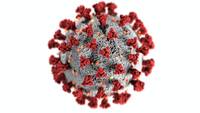MedicalResearch.com Interview with:
Rubén Nieto
eHealth Lab Research Group,
Faculty of Health Sciences
Universitat Oberta de Catalunya
Barcelona, Spain
MedicalResearch.com: What is the background for this study?
Response: The COVID-19 pandemic is one of the most serious global challenges to have faced healthcare and society in the last century, taking a drastic toll on the world’s population. It has caused deaths, worsened people’s quality of life and upended the economy, among other consequences. Despite this, there is little research on how people are coping with the pandemic. In our opinion, it is of particular interest to study people with chronic pain, since COVID-19 and the circumstances surrounding it can have a greater impact on them.
Continue reading

